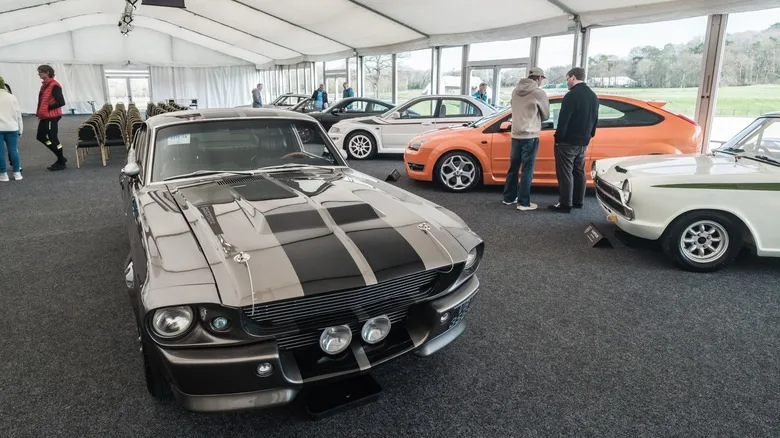What Is Classic Car Financing?
If you’ve ever dreamed of proudly owning a beautifully restored Mustang or a vintage Porsche, you are no longer by myself. But classic vehicles aren’t just fascinating collectibles—they’re huge investments. That’s in which classic car financing comes into play. Unlike popular auto loans, conventional car financing is customized for rare, antique, and collector vehicles. Whether you are a seasoned collector or a passionate first-time consumer, information the way to steady financing on your dream experience is important—specifically if you’re managing terrible credit.
What Makes Classic Car Financing Different?
Eligibility and Loan Terms
Classic automobile loans are unlike traditional auto loans. Lenders take into account:
- Age of the vehicle (typically 20+ years)
- Rarity and collectibility
- Appraised value, not market price
- Down fee necessities (can be 10–20%)
These loans can also have shorter repayment phrases and higher hobby charges, making it important to save around.
Where to Get Classic Car Financing
1. Banks and Credit Unions
Many banks and credit score unions offer special mortgage merchandise for conventional automobiles. Credit unions frequently have:
- Lower hobby rates
- Flexible terms
- More personalised provider
But approval may be tougher with horrific credit score.
2. Specialty Lenders
Companies like Woodside Credit, J.J. Best Banc & Co., and LightStream specialize in classic car financing and cater particularly to creditors.
Key Benefits:
- Approve loans based on car’s appraised price
- Favorable terms for high-value cars
- Better options for people with imperfect credit
Classic Car Financing with Bad Credit
Is It Possible? Absolutely.
If your credit score rating is under six hundred, you might face:
- Higher hobby costs
- Larger down bills
- Stricter documentation necessities
But it’s nevertheless workable!
Tips for Bad Credit Applicants:
- Improve your rating before applying
- Offer a better down payment
- Choose decrease-priced classics
- Show proof of income and monetary stability
- Get pre-approval from multiple creditors
Best Practices When Applying
1. Get the Car Appraised
Most lenders require an legit appraisal. Work with a licensed appraiser who knows classic vehicles.
2. Organize Documentation
You’ll want:
- Vehicle details (VIN, mileage, situation)
- Proof of coverage
- Income statements or tax returns
- Personal ID and bank information
3. Check Loan Terms Carefully
Focus on:
- APR (Annual Percentage Rate)
- Loan length
- Monthly fee time table
- Prepayment consequences
Pros and Cons of Classic Car Financing
✅ Pros:
- Allows you to maintain cash glide
- Own rare assets without prematurely expenses
- Flexible financing from strong point lenders
- Build credit score rating with constant payments
❌ Cons:
- Higher interest charges than new automobile loans
- Not all motors qualify
- Risk of depreciation or marketplace fluctuation
- Limited alternatives for people with bad credit score
How to Improve Your Approval Chances
✔ Choose the Right Lender
Research lenders who have enjoy in collector car financing.
✔ Be Ready with a Down Payment
The more you can pay prematurely, the lower your month-to-month burden.
✔ Show Financial Responsibility
Even with bad credit, proving a consistent income and low debt-to-profits ratio can enhance your chances.
Can You Lease a Classic Car?
Leasing alternatives are rare for conventional motors, however no longer impossible. Some high-end dealers offer rent-to-personal programs.
Insurance Considerations
Many creditors require traditional car insurance with particular clauses, including:
- Agreed cost coverage
- Storage evidence
- Limited mileage utilization
Companies like Hagerty and Grundy specialize in this.
Classic Car Loans vs. Personal Loans
| Feature | Classic Car Loan | Personal Loan |
|---|---|---|
| Based on Vehicle | ✅ Yes | ❌ No |
| Lower Interest | ✅ Usually | ❌ Often Higher |
| Appraisal Needed | ✅ Required | ❌ Not Needed |
| Vehicle Title Held | ✅ By Lender | ❌ Not Always |
Classic car loans are favored whilst you’re financing high-fee or collectible vehicles.
Top Classic Cars Worth Financing in 2025
Here’s a listing of famous classics that enthusiasts frequently finance:
- 1967 Ford Mustang Fastback
- 1969 Dodge Charger
- 1971 Chevrolet Camaro
- 1989 Porsche 911 Carrera
- 1970 Chevrolet Chevelle SS
These cars frequently maintain price well and are simpler to insure and finance.
Common Mistakes to Avoid
- Skipping Pre-Approval: Always compare lenders.
- Underestimating Maintenance Costs: Old cars may be high priced to fix.
- Overborrowing: Stay within finances, particularly with awful credit score.
- Ignoring Insurance: Without proper insurance, you could’t near financing.
Summary
Classic car financing enables fanatics to purchase collectible motors with plausible payments. Whether you are buying your dream automobile or making an investment, there are alternatives regardless of terrible credit. The key’s choosing the proper lender, preparing documents, and budgeting wisely to stable the fine phrases possible.
Frequently Asked Questions (FAQs)
Do I want an appraisal to get financing?
Yes, most lenders require an official appraisal to determine the vehicle’s fee before issuing a mortgage.
What is the standard interest charge for a traditional car mortgage?
It varies but generally ranges from 5% to 10%, depending on the lender, vehicle value, and your credit score history.
Is classic automobile coverage required for financing?
Absolutely. Specialized insurance is commonly mandatory to defend each the lender’s and your funding.
Can I refinance a classic vehicle mortgage later?
Yes, a few lenders provide refinancing alternatives to lessen month-to-month payments or hobby charges once your credit score improves.
